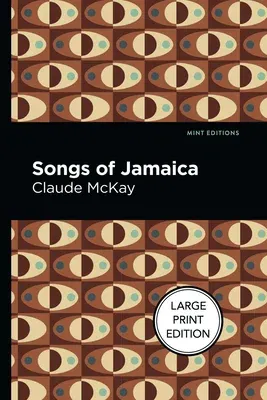Songs of Jamaica (1912) is a poetry collection by Claude McKay.
Published before the poet left Jamaica for the United States, Songs of
Jamaica is a pioneering collection of verse written in Jamaican Patois,
the first of its kind. As a committed leftist, McKay was a keen observer
of the Black experience in the Caribbean, the American South, and later
in New York, where he gained a reputation during the Harlem Renaissance
for celebrating the resilience and cultural achievement of the African
American community while lamenting the poverty and violence they faced
every day. "Quashie to Buccra," the opening poem, frames this schism in
terms of labor, as one class labors to fulfill the desires of another:
"You tas'e petater an' you say it sweet, / But you no know how hard we
wuk fe it; / You want a basketful fe quattiewut, / 'Cause you no know
how 'tiff de bush fe cut." Addressing himself to a white audience, he
exposes the schism inherent to colonial society between white and black,
rich and poor. Advising his white reader to question their privileged
consumption, dependent as it is on the subjugation of Jamaica's black
community, McKay warns that "hardship always melt away / Wheneber it
comes roun' to reapin' day." This revolutionary sentiment carries
throughout Songs of Jamaica, finding an echo in the brilliant poem
"Whe' fe do?" Addressed to his own people, McKay offers hope for a
brighter future to come: "We needn' fold we han' an' cry, / Nor vex we
heart wid groan and sigh; / De best we can do is fe try / To fight de
despair drawin' night: / Den we might conquer by an' by-- / Dat we might
do." With a beautifully designed cover and professionally typeset
manuscript, this edition of Claude McKay's Songs of Jamaica is a
classic of Jamaican literature reimagined for modern readers.


